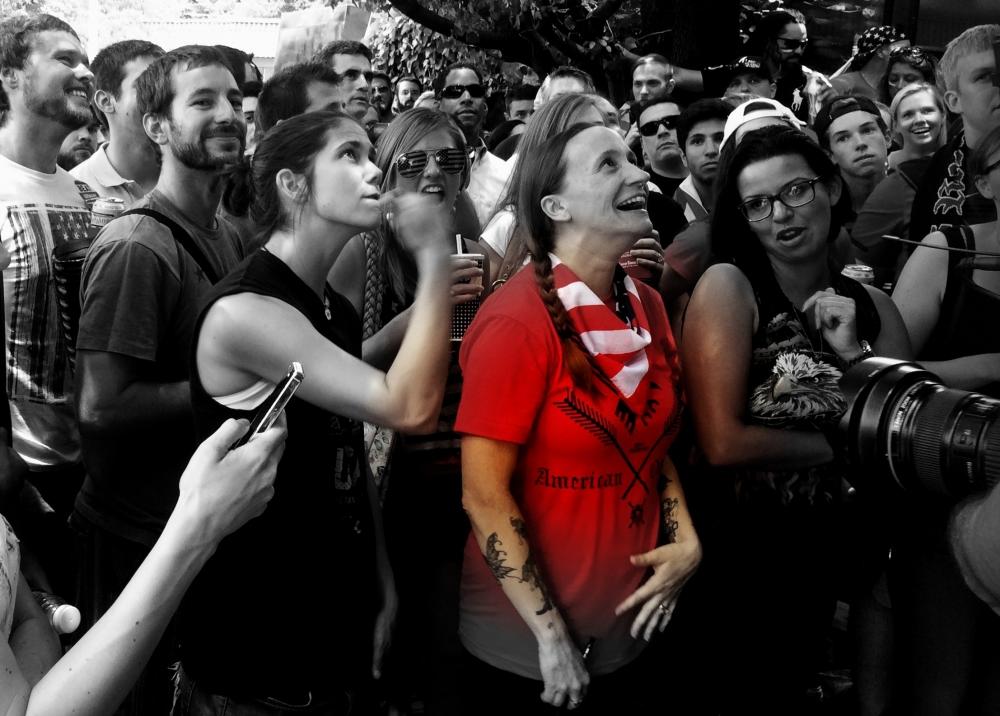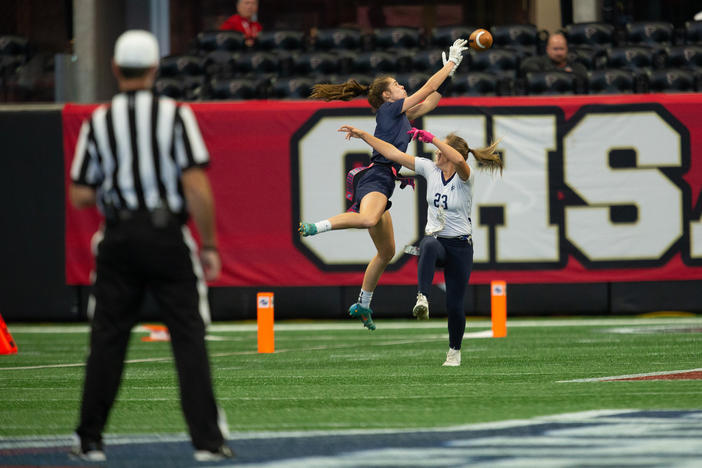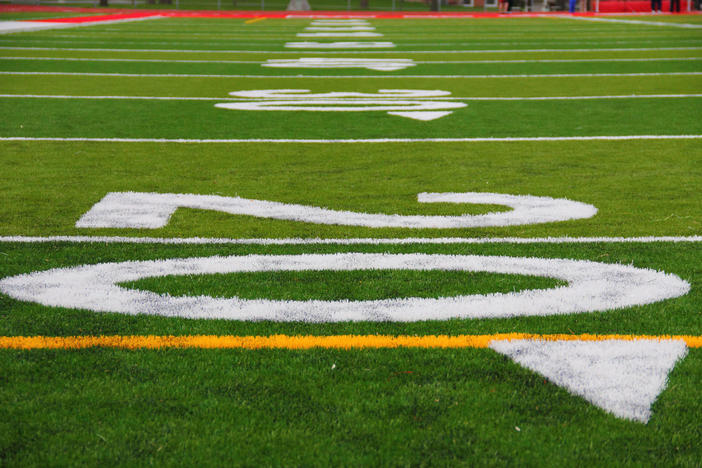
Section Branding
Header Content
Soccer In America: A Trend Or Here To Stay?
Primary Content

Written By: GPB Sports Intern Savannah Pratt
When Brewhouse Café owner Denise Gernard was asked about soccer’s popularity in the U.S. related to that of football, she responded by saying, "The NFL will just take a backseat.” For the last five World Cups, this soccer enthusiast has established her British-style restaurant as the sought-after location in Atlanta for soccer fans to gather and cheer for Team USA.
Upon entering, I was surrounded by a sea of U.S. fans proudly adorned in red, white and blue. The crowd was cheering and chanting, “I believe that we will win!” U.S. fans had high hopes that team USA would take the win over Germany.
The Brewhouse Café was the location I chose to question fans about why soccer’s popularity only seems to spike in the U.S. when the World Cup rolls around every four years. I was intrigued by fans’ responses.
When I asked Aaron, a U.S. fan, why he thought soccer was not more popular in the United States, he told me, “It’s just not a part of our cultural identity right now. “ Another fan named Mark Grever said, “That level of competition is not here yet and that’s it, that is the only difference.”
Since soccer is not a part of our cultural identity, is there hope for soccer to become as popular in America as say…football?
“Soccer is taking over to be one of the number one sports in the United States,” said Denise, owner of Brewhouse Cafe. Could she be right?
U.S. fans have packed stadiums in Brazil to watch the red, white and blue take on opponents. The Washington Post wrote, “According to FIFA, more than 200,000 World Cup tickets were purchased by U.S. residents. The only country responsible for more ticket sales is the host nation.”
This statistic might lead one to believe that soccer is becoming one of the number one sports in America. In the same token though, some might say that the World Cup is trendy and all the soccer excitement will fade away when the World Cup wraps up.
I spoke with a fan that traveled all the way to Brazil to watch USA play Ghana. This fan, Matthew O’Horn, explained his experience, “In Brazil there were a lot of U.S. fans…It seemed like a home game when I was there.”
There are certainly American fans that follow soccer avidly. It appears that every four years, the World Cup strikes a spark that spreads like a wild fire through the hearts of both diehard and casual American soccer fans. The enthusiasm heightens for both. Then, the excitement seems to die down as soon as the U.S. is no longer competing in the World Cup...or does it? The soccer fans at the Brewhouse Café would probably disagree as they look ahead to the U.S. vs. Belgium game on Tuesday, July 1, 2014.
When Brewhouse Café owner Denise Gernard was asked about soccer’s popularity in the U.S. related to that of football, she responded by saying, "The NFL will just take a backseat.”





